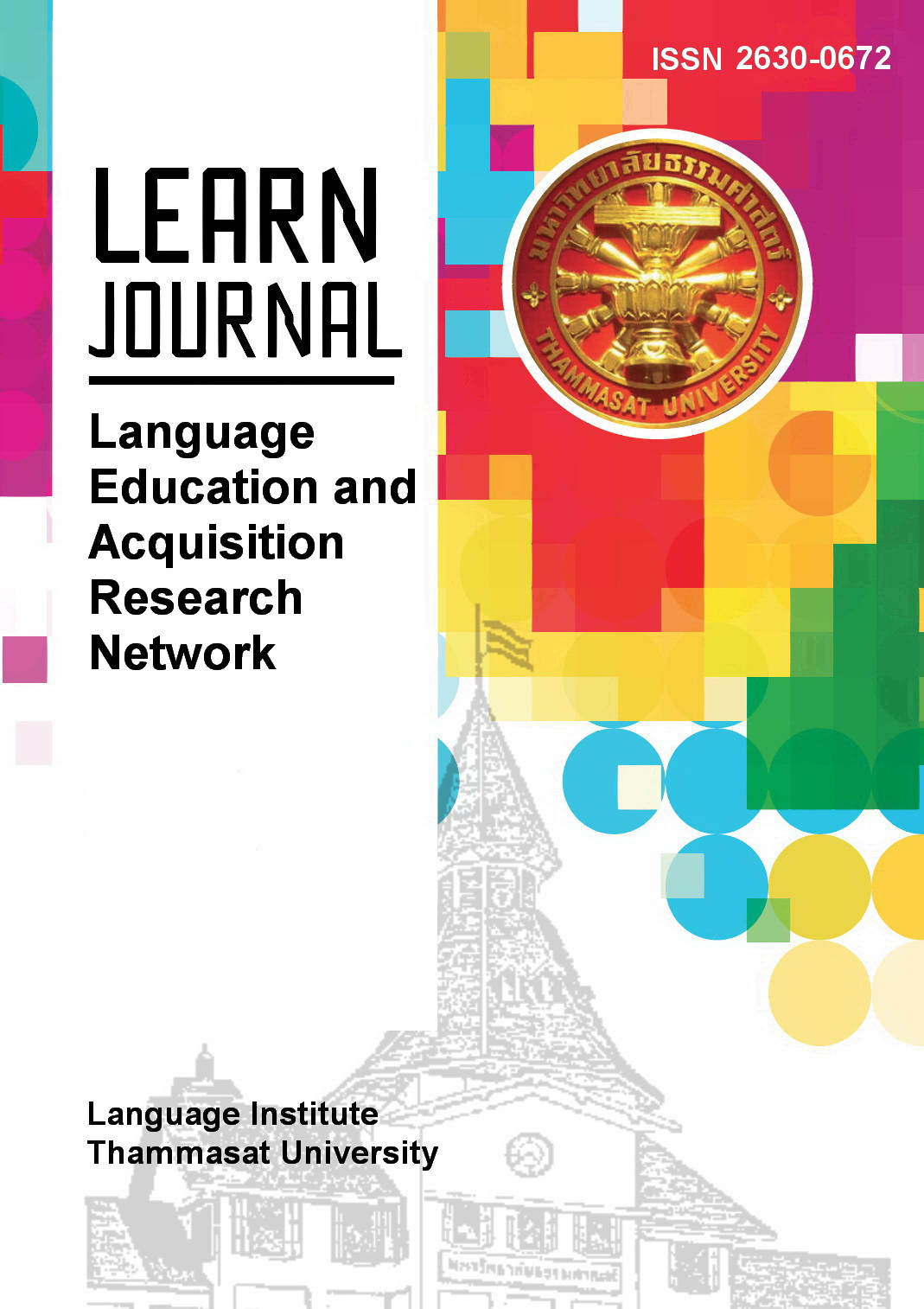Learner Autonomy: Attitudes of Graduate Students in English Language Teaching Program in Thailand
Main Article Content
Abstract
The objective of this study was to explore the attitudes toward learner autonomy of graduate students in English Language Teaching (ELT) international program in Thailand. Attitudes toward definition and importance of learner autonomy, important persons in a learning process, and factors promoting and hindering autonomy development were explored. This study took a form of a qualitative research design using an open-response questionnaire to collect data from 23 participants from China, Myanmar and Thailand. The data were analyzed by thematic content analysis and four themes emerged: 1) Learner autonomy as technical, psychological, and political ability; 2) Perceived value of learner autonomy; 3) Importance of teacher and student in a learning process; and 4) Teachers as a major factor both promoting and hindering learner autonomy.


